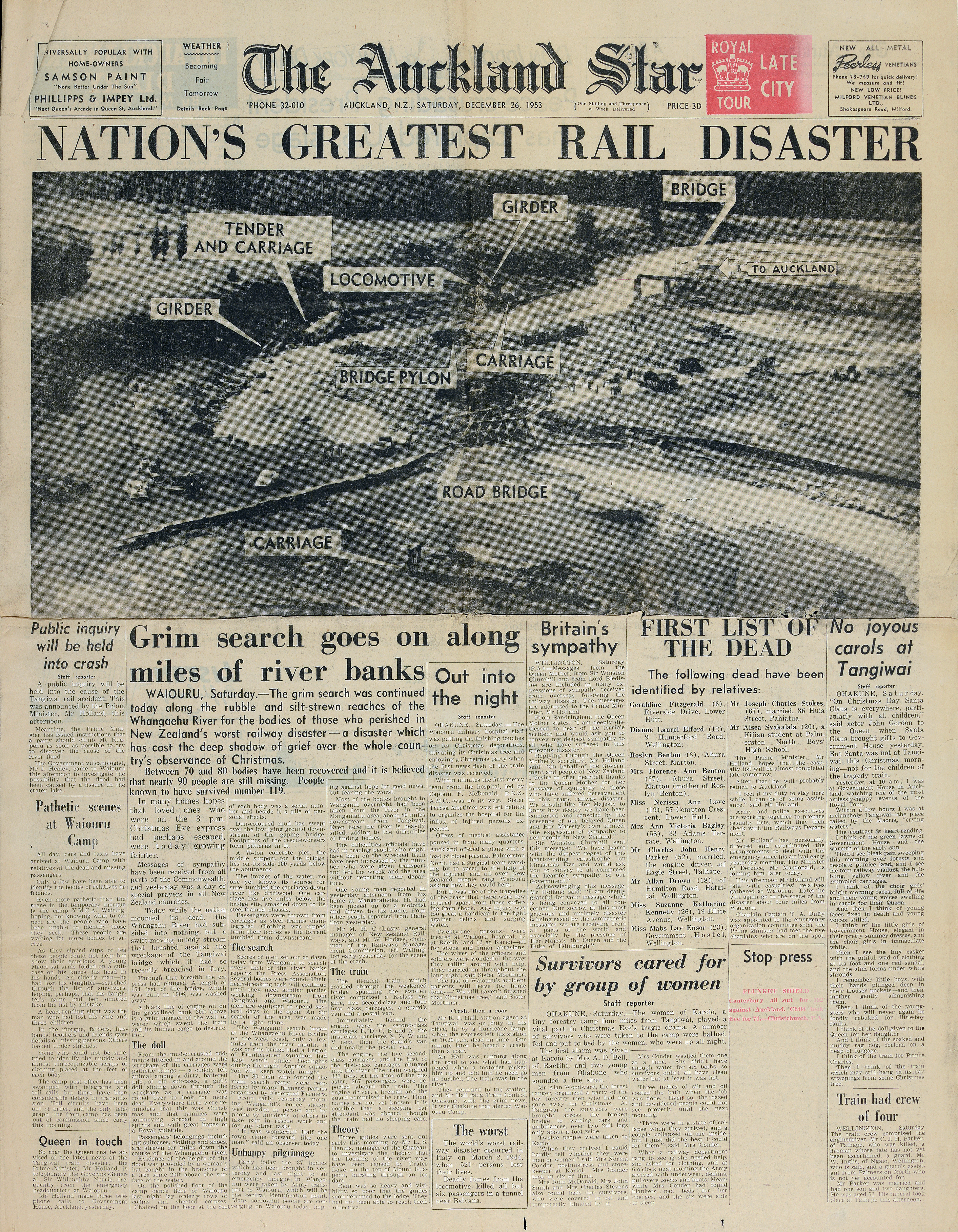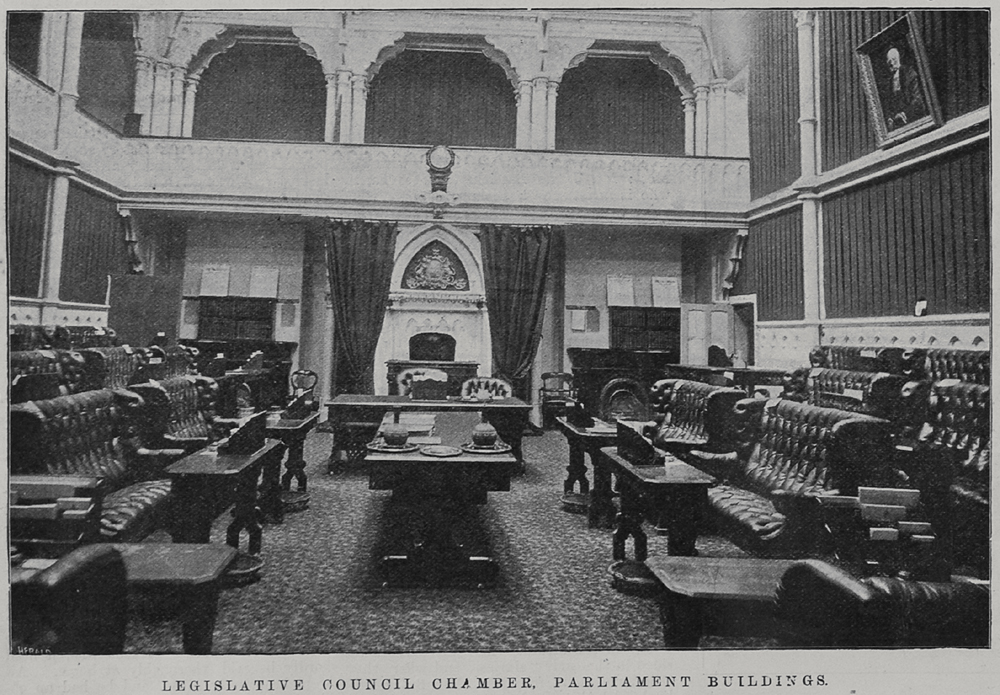|
Frederic Lang
Sir Frederic William Lang (1852 – 5 March 1937) was a New Zealand politician, initially an independent conservative, then from 1914 a member of the Reform Party. He was the eighth Speaker of the House of Representatives, from 1913 to 1922. Early life Lang was born in Blackheath, Kent, England, in 1852. He emigrated to New Zealand as a young man and settled in Tuhikaramea near present-day Temple View. He played football and represented the Auckland Province. He never married. Around 1906, he sold his farm and moved to Onehunga. Political career Lang's political career started with his election to the Tuhikaramea Road Board. He was elected onto the Waipa County and became its chairman. He also belonged to the Waikato Charitable Aid Board. He was the Member of Parliament for from 1893 to 1896; then Waikato from 1896 to 1905 when he was defeated; then Manukau from 6 December until 1922, when he was defeated. He was Chairman of Committees from 1912 to 1913. He ... [...More Info...] [...Related Items...] OR: [Wikipedia] [Google] [Baidu] |
The Honourable
''The Honourable'' (British English) or ''The Honorable'' (American English; see spelling differences) (abbreviation: ''Hon.'', ''Hon'ble'', or variations) is an honorific style that is used as a prefix before the names or titles of certain people, usually with official governmental or diplomatic positions. Use by governments International diplomacy In international diplomatic relations, representatives of foreign states are often styled as ''The Honourable''. Deputy chiefs of mission, , consuls-general and consuls are always given the style. All heads of consular posts, whether they are honorary or career postholders, are accorded the style according to the State Department of the United States. However, the style ''Excellency'' instead of ''The Honourable'' is used for ambassadors and high commissioners. Africa The Congo In the Democratic Republic of the Congo, the prefix 'Honourable' or 'Hon.' is used for members of both chambers of the Parliament of the Democratic Repu ... [...More Info...] [...Related Items...] OR: [Wikipedia] [Google] [Baidu] |
Waipa County
Waipa may refer to: New Zealand * Waipa (New Zealand electorate), a former electorate * Waipa District, a territorial local authority * Waipā River, a waterway Elsewhere * World Association of Investment Promotion Agencies The World Association of Investment Promotion Agencies (WAIPA) is an international Non-governmental organization established in 1995 by the United Nations Conference on Trade and Development that acts as a forum for investment promotion agencies ( ..., using the acronym WAIPA * Waipa Foundation, non-profit organisation in Hawaii {{disambiguation ... [...More Info...] [...Related Items...] OR: [Wikipedia] [Google] [Baidu] |
Auckland Star
The ''Auckland Star'' was an evening daily newspaper published in Auckland, New Zealand, from 24 March 1870 to 16 August 1991. Survived by its Sunday edition, the ''Sunday Star'', part of its name endures in ''The Sunday Star-Times'', created in the 1994 merger of the ''Dominion Sunday Times'' and the ''Sunday Star''. Originally published as the ''Evening Star'' from 24 March 1870 to 7 March 1879, the paper continued as the ''Auckland Evening Star'' between 8 March 1879 and 12 April 1887, and from then on as the ''Auckland Star''. One of the paper's notable investigative journalists was Pat Booth, who was responsible for notable coverage of the Crewe murders and the eventual exoneration of Arthur Allan Thomas. Booth and the paper extensively reported on the Mr Asia case. In 1987, the owners of the ''Star'' launched a morning newspaper to more directly compete with ''The New Zealand Herald''. The ''Auckland Sun'' was affected by the 1987 stock market crash and folded a year l ... [...More Info...] [...Related Items...] OR: [Wikipedia] [Google] [Baidu] |
King George V Silver Jubilee Medal
The King George V Silver Jubilee Medal is a commemorative medal, instituted to celebrate the 25th anniversary of the accession of King George V. Issue This medal was awarded as a personal souvenir by King George V to commemorate his Silver Jubilee. It was awarded to the Royal Family and selected officers of state, officials and servants of the Royal Household, ministers, government officials, mayors, public servants, local government officials, members of the navy, army, air force and police in Britain, her colonies and Dominions. For Coronation and Jubilee medals, the practice up until 1977 was that United Kingdom authorities decided on a total number to be produced, then allocated a proportion to each of the Commonwealth countries and Crown dependencies and possessions. The award of the medals was then at the discretion of the local government authority, who were free to decide who would be awarded a medal and why. A total of 85,234 medals were awarded, including *6,500 ... [...More Info...] [...Related Items...] OR: [Wikipedia] [Google] [Baidu] |
New Zealand Legislative Council
The New Zealand Legislative Council was the upper house of the General Assembly of New Zealand between 1853 and 1951. An earlier arrangement of legislative councils for the colony and provinces existed from 1841 when New Zealand became a colony; it was reconstituted as the upper house of a bicameral legislature when New Zealand became self-governing in 1852, which came into effect in the following year. Unlike the elected lower house, the House of Representatives, the Legislative Council was wholly appointed by the governor-general. The New Zealand Constitution Act 1852 had authorised the appointment of a minimum of ten councillors. Beginning in the 1890s, the membership of the upper house became controlled by government of the day. As a result, the Legislative Council possessed little influence. While intended as a revising chamber, in practice, debates and votes typically simply replicated those in the lower house. It was abolished by an Act of Parliament in 1950, with ... [...More Info...] [...Related Items...] OR: [Wikipedia] [Google] [Baidu] |
Maori Language Act 1987
The Māori Language Act 1987 was a piece of legislation passed by the Parliament of New Zealand that gave official language status to the Māori language (), and gave speakers a right to use it in legal settings such as courts. It also established the Māori Language Commission, initially called , to promote the language and provide advice on it. The law was enacted as the ''Maori Language Act 1987'' and originally written without macrons. The 1987 act was repealed by section 48 of the Māori Language Act 2016, however there were no major changes from the provisions of the old legislation and the 2016 act merely updated the 1987 law with new provisions and language. Context The act was the result of years of campaigning by Māori, particularly those involved in the Māori protest movement. It was also the result of shifts in thinking about the Treaty of Waitangi. By the mid-1980s, the treaty had acquired increased relevance thanks primarily to the Waitangi Tribunal. The act wa ... [...More Info...] [...Related Items...] OR: [Wikipedia] [Google] [Baidu] |
Māori Renaissance
The Māori renaissance is the revival in fortunes of the Māori of New Zealand beginning in the 1970s. Until 1914, and possibly later, the perception of the Māori race, although dying out, was capable and worthy of saving, but only within a European system. From the 1970s, government policy changed to promoting a bicultural New Zealand society. This change has led to Maori being politically, culturally and artistically ascendant. Māori population was at a low point at the beginning of the twentieth century with less than 50,000, and the Pākehā population had grown to over 800,000. The total Māori population grew in the 20th century and alongside this was a rebuilding of a cultural, economic and political base. This was the foundation of the Māori renaissance in the 1960s and 70s where, “...by 1940, Māori land was being developed for Māori (with state assistance) rather than sold, Māori political influence was being felt, and a renaissance in Māoritanga was proudly ass ... [...More Info...] [...Related Items...] OR: [Wikipedia] [Google] [Baidu] |

